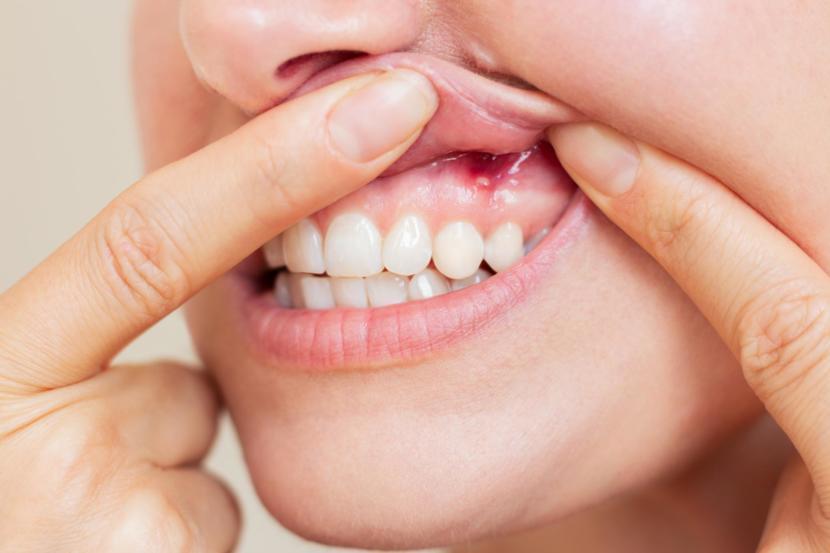Bleeding Gums? Here's Why It Happens

Dr. Dr Shashi Kumar is a Dentist practicing in Hewitt, TX. Dr. Kumar specializes in preventing, diagnosing, and treating diseases and conditions associated with the mouth and overall dental health. Dentists are trained to carry out such treatment as professional cleaning, restorative, prosthodontic, and endodontic procedures,... more
If you’ve ever noticed blood while brushing or flossing your teeth, you’re not alone. Bleeding gums are a common issue that can be caused by several factors. While it might seem minor, bleeding gums can signal underlying problems that need attention. Let’s explore the reasons behind bleeding gums and what you can do about it.
1. Gingivitis: The Early Stage of Gum Disease
The most common reason for bleeding gums is gingivitis, an early stage of gum disease. When plaque builds up on your teeth and along the gumline, it can lead to inflammation. This makes your gums red, swollen, and more likely to bleed, especially during brushing or flossing. The good news? Gingivitis is reversible with proper oral care and regular dental cleanings.
2. Brushing Too Hard
Sometimes, bleeding gums are simply a result of brushing too aggressively. Using a hard-bristled toothbrush or pressing too hard can damage your gums, causing them to bleed. Switch to a soft-bristled toothbrush and use gentle, circular motions to clean your teeth.
3. Improper Flossing Technique
If you’ve recently started flossing or are using the wrong technique, your gums might bleed. Don’t let this discourage you! It’s normal for gums to bleed a little when you begin flossing, but this should stop as your gums become healthier. Be sure to glide the floss gently between your teeth to avoid irritation.
4. Ill-Fitting Dental Appliances
Dentures, braces, or other dental appliances that don’t fit properly can rub against your gums, causing irritation and bleeding. If you suspect your dental appliances are the issue, visit your dentist for adjustments.
5. Medications
Certain medications, like blood thinners, can make your gums more prone to bleeding. If you’ve started a new medication and notice bleeding gums, consult your doctor or dentist to discuss potential solutions.
6. Vitamin Deficiencies
Your diet plays a significant role in gum health. A lack of vitamin C or vitamin K can lead to bleeding gums. Vitamin C helps maintain healthy gums, while vitamin K supports blood clotting. Incorporate foods like oranges, leafy greens, and broccoli into your meals to prevent deficiencies.
7. Hormonal Changes
Hormonal fluctuations during pregnancy, menstruation, or menopause can make gums more sensitive and prone to bleeding. This is because increased hormone levels affect blood flow to the gums. If you’re experiencing hormonal changes, take extra care with your oral hygiene.
8. Underlying Health Conditions
Bleeding gums can sometimes indicate more serious health issues, such as:
- Diabetes: High blood sugar levels can lead to gum problems.
- Blood Disorders: Conditions like leukemia or platelet disorders can cause gum bleeding.
- Infections: Certain infections can make your gums more vulnerable.
If you suspect a medical condition might be causing your symptoms, don’t hesitate to consult a healthcare professional.
5 Simple Ways to Prevent and Treat Bleeding Gums
Bleeding gums don’t have to be a lasting problem. Here’s how you can take control and protect your gum health:
-
Brush and Floss Like a Pro
Use a soft-bristled toothbrush to brush gently twice a day, and floss daily to remove plaque and food debris that irritate gums. -
See Your Dentist Regularly
Don’t wait for a problem—schedule routine dental check-ups to catch gum issues early and keep your oral health in check. -
Boost Your Nutrition
Add foods rich in vitamin C (like oranges) and vitamin K (like spinach) to your diet. These nutrients help strengthen your gums and prevent bleeding. -
Drink More Water
Staying hydrated washes away bacteria and keeps your mouth clean throughout the day. It’s one of the easiest ways to support gum health. -
Kick the Smoking Habit
Smoking weakens gums, slows healing, and increases your risk of gum disease. Quitting can make a huge difference for your smile.
When to See a Dentist
If your gums continue to bleed despite improving your oral care routine, or if you experience pain, swelling, or persistent bad breath, it’s time to see a dentist. Dr Shashi Kumar and the team at ACE Dental of Hewitt specialize in diagnosing and treating gum health issues. With their expertise, they can pinpoint the root cause of the problem and provide personalized treatment options to restore your gums to optimal health.









